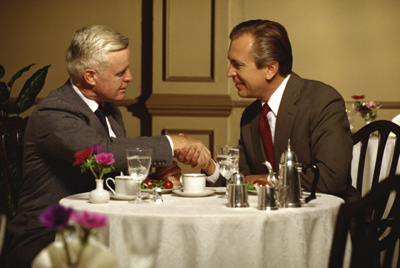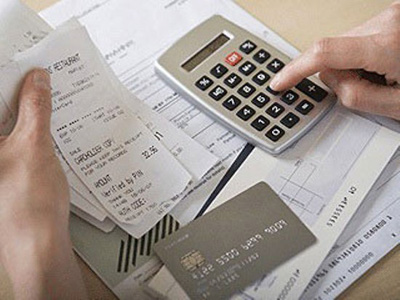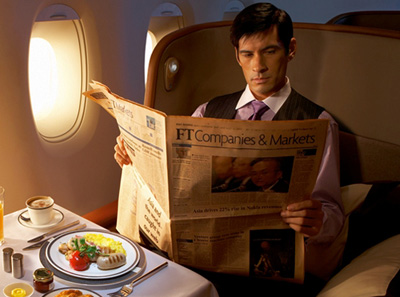We travel, travel, travel and spend, spend, spend?
According to a staff member of one of the leading Russian companies that provides consulting and audit services, business trips are a great opportunity to travel around the world, enjoy good service in restaurants, meet new people and work a little. A fashion editor of a fashion magazine admits that he has long considered business trips as an unscheduled vacation and a chance to enjoy a luxurious way of life. These respondents are under 30 and they have worked in one place for more than 3 years. A

Considering the respondents’ age and the aims of their business trips, American research company Harris Interactive has conducted a survey among 8535 business travellers all over the world.
The aim of the research was to determine and to follow up the main behaviour reactions of employees of various age, who have frequent business trips. Sociologists have pointed out three key aspects of all business trips in their point of view: costs, level of comfort and behaviour after the trip. All survey participants were divided into three age groups: younger employees
Vanity fair
Representatives of the younger age group have admitted that they have frequently been unthrifty, spent the company’s money and deliberately overstated their costs. Such behaviour was explained by the fact that younger people were eager to make a number of things they could not afford during their vacation for financial reasons.
42% of respondents said they did not save on their meals during business trips;
37% admitted they would not be satisfied with democratic service in a hotel or a restaurant;
27% would prefer only the best hotel room;
24% required a certain set of accessories in the hotel: slippers, an extra set of blankets, sweets and souvenirs;
22% preferred services of only one airline;
21% had their mini bar filled according to their own individual request;
20% booked transfer by limousine only.
An employee of one of Moscow companies admits that she has always wanted to try ice cream with golden crumbs. It used to be served in the Prague restaurant, but the girl was a student at that time and could not afford restaurants of this class. When she was in Brussels on a business trip she finally fulfilled her dream of the past and tried that very ice cream. «Of course an ordinary cream ice cream could have been enough, but the temptation wad so great and, you just think about it, is 100€ a large sum for an international holding?», she said.
According to the survey, representatives of the middle and senior age groups had only several episodes of luxurious behaviour during their business trips. The impetus for unscheduled expenditures was the desire to make a favourable impression on their business partners.

«If a business trip schedule includes an informal dinner, I only have to warn my boss that big expenses are quite possible. People usually order the most expensive and exclusive dishes during events like that — it is a kind of a challenge and a check of the company’s paying capacity, so you have to meet the standards whether you want it or not», deputy director of a beer brewing company admits.
The only thing that the representatives of the three age groups were not willing to save on and were ready to pay for was extra room for legs in the plane or a car.
Interestingly, Russian business travellers do not consider this nuance to be the symbol of absolute comfort. In the words of a Moscow bank employee, attentive and polite flight hostesses in the plane and high speed Internet in the hotel room were much more important for her than some trifles like two extra centimeters between two chairs.
Many hotels and airlines encourage their frequent clients with various discounts and bonuses. Sociologists have asked the respondents the question: «How important is it for you to get a compliment from a hotel or an airline when you go on a business trip?» 29% of younger group representatives have admitted that they hope to get a nice bonus as an extra discount or a souvenir every time they travel. This percentage rate was 25% in the middle age group and 23% in the senior age group. In Northern America 31% of respondents under the age of 30 are convinced that have every right, and not just want, to get a discount as they frequently prefer services of the same hotel or airline.

It is no secret, that many employees expand the geography of business trips for personal reasons. 62% of younger business travellers all over the world have admitted that they used this scheme last year to visit relatives, attend a musical festival or to spend several days with their friends. 51% of respondents of the middle age group, as well as 37% of the senior age group have combined personal interests and job duties.
«I come from Zaporozhe, so when my boss set the task to expand business geography, I convinced him that Zaporozhe was a very promising business area. Thus, I have started going to my native city on business regularly and visiting my relatives and friends at the company’s expenses», a director of a key account department of an IT company notes.
He prefers comfort and old wine
At the second stage of the survey sociologists decided to determine the minimum comfort level for each age group. All business community representatives put the hotel’s location relative to airports, exhibition centres and cultural landmarks on the first place when choosing a hotel. The second was the compliance of the price to the travel policy. The third and the forth criteria were the status, the number of stars and loyalty programs.

Representatives of all the three groups have demonstrated the same preferences when booking air tickets. According to the respondents, direct flights, minimum travel time, Wi-Fi on board the plane, modern seats, extra leg room, fresh press, a diversified menu were not travellers’ whims, but a necessary minimum that sometimes determined the success of the whole business trip.
«My business trip starts when I get on board the plane. The airplane takes off and I drown myself in work. So it is extremely important for my business meeting schedule not to be breaken by anything, because a lot of money and the company’s image are at stake», an employee of a fashion house notes.
Business accompanied by a smartphone
Apart from a certain comfort zone, it was important for the sociologists to determine the main booking channels, frequency of the use of mobile applications, the number of Internet connections from smartphones or tablet computers. Representatives of the younger age group have demonstrated high frequency of the use of mobile applications to book hotels and airline tickets. Unlike respondents from middle and senior age groups, they almost did not use gadgets to read books or to plan their cultural program. 43% of respondents aged

The respondents’ behaviour after the trip has become another important aspect of the sociological survey. Almost all representatives of the younger age group have placed their negative or a positive comments in the Internet at least once, they were devoted to a hotel, a dinner in a restaurant or to the general organization of their business trip. Respondents of the middle and senior age groups never left comments in social networks, but usually read pages devoted to cultural traditions, fashionable restaurants and the main places of interest of the region they were to go to on a business trip.
«It has become our good tradition to put together a dossier in the Internet before our family vacation or a business trip. Now all my colleagues do the same. Thanks to the world wide web I have at least the smallest guaranty that the restaurant I have chosen to meet my partners will leave a nice impression», an employee of a real estate agency admitted.
According to Mark Hollyhead, vice president of the American Expedia branch, the survey conducted clearly demonstrates the trends that will dominate on the business travel market for the next few years. First of all, business trips and leisure are combined. It is explained by the fact that there are two extremes in the modern world: people either have time to travel but do not have a financial opportunity for it, or they can afford it but do not have time for a proper holiday. According to the survey, 60% of business travellers admit that they try to combine leisure and business trips, because it is the only chance to see the world and to have a rest without interrupting their business process. It is evident that younger businessmen have higher standards of service, and try to prevent force majeure situations even at the stage of business trip planning. Besides, modern business travellers eagerly share their personal data if it is required by the booking process.

The survey results are absolutely true for the Russian business community. Our businessmen, very much like their foreign colleagues, have a good judge of high service levels and try to create maximum comfort for themselves not only at their working place, but also during their business trips. The only fundamental difference consists in the fact that middle and senior age group representatives in western countries try to serve their company’s interests to the maximum irrespective of their position in the company. In Russia employees start saving money only in case the company belongs to them.
Sofya Dukorskaya
Adapted from businesstravelnews.com